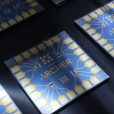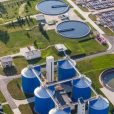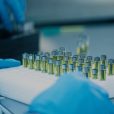Shares in biotechnology business Nyrada (ASX: NYR) lifted by nearly 40 per cent on Wednesday following the successful completion of safety studies on its lead drug candidate for the treatment of traumatic brain injury and strokes, NYR-BI03.
The favourable results have now opened the door for a first clinical trial of the drug on humans as the company targets its future commercialisation in multi-billion-dollar global markets.
The now concluded ‘Good Laboratory Practice’ (GLP) safety studies involved a previously reported 14-day toxicology study comprising the administration of NYR-BI03 to dogs, with the latest results incorporating a 14-day toxicology study on rats.
Management noted that NYR-BI03 was well tolerated in both cases without any significant safety concerns, despite the drug being administered in doses far exceeding the expected therapeutic levels.
The final toxicological assessment could represent a major milestone for Nyrada by enhancing the prospects for the safety profile of the drug observed in animals to also be applicable in humans.
Nyrada now plans to launch a Phase 1 clinical trial for NYR-BI03 in Australia during the fourth quarter of this year, subject to regulatory approval from the Human Ethics Research Committee (HREC).
The trial is designed to evaluate the safety, tolerability, and pharmacokinetics of the drug in healthy human volunteers, with pharmacokinetic testing to set to gauge how the drug is absorbed, distributed, metabolised, and excreted in the body.
The company expects the trial to run into the second half of 2025.
Nyrada chief executive officer, James Bonnar, said:
“We are thrilled to have completed the GLP studies, which have confirmed a favourable safety profile for NYR-BI03, giving us confidence that it will transition well into human studies.
The imminent progression of NYR-BI03 into clinical trials is exciting and will mark a significant milestone for the Company, particularly as we now have preclinical evidence supporting its efficacy in both neuroprotection and cardioprotection. This positions us to target three major markets with one therapeutic.”
Nyrada’s previous preclinical trials of NYR-BI03 on animals returned encouraging outcomes for application to brain injuries and heart disease.
In February this year, the group reported results from a stroke study showing that NYR-BI03 achieved a statistically significant neuroprotective effect by rescuing 42 per cent of brain tissue in the penumbra region of treated animals.
In addition, earlier this month Nyrada presented results from a preclinical study on rats which suggested NYR-BI03 has strong efficacy in limiting cardiovascular damage associated with coronary heart disease.
More specifically, the study found that NYR-BI03 provided an 86 per cent cardioprotective effect following myocardial ischemic-reperfusion injury – a leading cause of tissue damage when blood flow is restored to the heart following an injury.
According to Nyrada, the study pointed to NYR-BI03’s superior efficacy compared to an existing therapy for cardioprotective treatment already approved by the US Food and Drug Administration (FDA), Captopril.
Notably, management believes there are currently no FDA approved treatments for neuroprotection despite some 5.5 million people around the world suffering from traumatic brain injuries each year, and 55 million people living with the effects of medically treated traumatic brain injuries.
The company values the global market opportunity for the treatment of brain injuries at US$3.5 billion. However, this addressable market is projected to grow at a compound annual growth rate of 6.2 per cent to reach US$5.5 billion by the end of the decade.
Meanwhile, Nyrada believes the global market for the treatment of strokes to be valued at close to US$30 billion, with forecasts suggesting this number could rise to more than US$50 billion by 2030. Some 15 million people suffer strokes each year and five million people are left permanently disabled by the disease.
Nyrada is also targeting a vast market opportunity for the treatment of cardiovascular disease that could rise to US$3.7 billion in the coming years.













1 Comment
Shraddha13
Thank you for sharing! To explore further
Replyhttps://www.360iresearch.com/library/intelligence/traumatic-brain-injury-assessment-management-devices